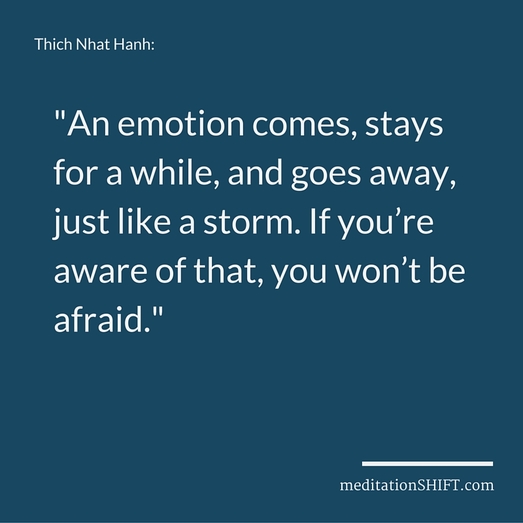|
This article was last updated January 2018. note: we link to our free guide to mindfulness and meditation at the bottom of the page (no email required). One of our most frequently asked questions is a version of this: "What's better, (a.) meditating 5-10 minutes every day, or (b.) meditating an hour in one sitting when you can find the time?" First, we'll answer the question. There's a quote that states "Consistency is better than rare moments of greatness." This applies to meditating. If you meditate "now and then" for an hour but don't do anything else, you probably won't receive a lot of benefit. It's far better to build a consistent practice where you meditate 5-10 minutes every day. It's even better to build a consistent practice where you meditate 5-10 minutes several times a day, every day. Next, we'll explain why the question is irrelevant and usually indicates a misunderstanding of why you should meditate. The dedicated exercise of meditating is meaningless if you don't strive to be mindful when you aren't meditating. Mindfulness is the application of the skills you develop when you meditate. When you meditate, you learn to watch thoughts, emotions, and other mental activity as it comes and goes; you learn to observe it all without getting caught up in it. And, by continuously watching it all come into being, exist, and cease, you'll develop an understanding of its temporary nature. If you don't give any of it fuel to persist by grasping after what you label "positive/pleasant" or pushing away what you label "negative/unpleasant," it simply arises and passes in your awareness. As Thich Nhat Hanh states, An emotion comes, stays for a while, and goes away, just like a storm. If you’re aware of that, you won’t be afraid. This is the essence of meditation - strengthening awareness of your mind-made activity as it comes and goes. But, in order to benefit from your practice, you need to apply the awareness you strengthen to your daily life when you aren't meditating. Put another way, You need to be mindful. How can you be mindful? Throughout the day, check to see where you attention is at. Is it dwelling on something from the past, leading to regret and depression? Is it ruminating on something that might happen in the future, leading to stress and anxiety? Or, is it in an alternate reality, escaping the present moment by indulging in fantasies and day-dreams? As you check, if you find that you aren't grounded in the present moment, simply move your attention back to what's happening right here and now. To help you remember to do this, you can utilize what we call "mindfulness cues." Mindfulness cues are audio or visual prompts - some examples include the following:
You can even do something as simple as making a pen mark on the back of your hand. When you see it, check to see where your attention is at. In conclusion, consistency trumps infrequent, longer sessions when it comes to meditating. But, what's critical is applying the skills you develop while meditating to your "non-meditating" time. Address the root cause.Your struggles and suffering - whether it's stress, feelings of anxiety or depression, low self-confidence, extreme emotions...or anything else - are caused by the difference between the way things are and the way the mind thinks they should be.
Does it make sense to continue trying to control everything "out there" to conform to the mind's expectations? Or, is a more skillful use of your time and energy changing the way you deal with the thoughts and stories the mind constantly churns out? If you believe it's the second option, continue reading... Comments are closed.
|
